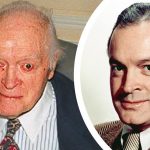Lou Reed is one of those legendary performers whose influence can’t be matched. His first taste of fame, though not celebrated by contemporary audiences, was in The Velvet Underground. The band was a favorite of infamous pop artist Andy Warhol. After a brief stint as a typist (“What?!” We hear you exclaim), he went on to have a prolific solo career and inspired some of the world’s most celebrated musicians.
Reed was born of the underground scene of the 1960s and 1970s, a tumultuous, experiential time that gave us artists like David Bowie and Iggy Pop–unrivaled even today. Despite this, in his early years, Reed’s heavy, droning music and complicated, silly, and often humorous lyrics were seen as too avant-garde for general audiences. Today, his early songwriting, especially his work with The Velvet Underground, is hailed as some of the most influential rock music of all time.
Are you wondering how Lou Reed managed to claw his way out of obscurity to become the famous musician we know and love today? Despite almost a decade passing since his, much of his life is still a mystery. Watch on to find out what we’ve dug up.
Lou Reed Was Once Very Ordinary
Like so many of the most excellent musicians, Lou Reed started his music career very young. He released his first album with a band called The Jades at the tender age of 14. Though Reed wrote the boppy 1950s-style song, which called “So Blue,” he doesn’t feature much in it. He signs backing vocals and plays a bit of rhythm guitar. While the song is nothing like Reed’s later works, it shows his early passion for jazz and blues. He dived deep into the free-style avant-garde jazz that exploded in the 1940s. A little later, Reed enrolled in Syracuse University, where he hosted a college radio show called Excursions on a Wobbly Rail. Though he primarily played palatable R&B tunes, Reed occasionally ventured into wilder territory with quirky jazz numbers. It was these early influences that continued to inspire Lou Reed throughout his career.
‘Ostrich Guitar’ Set Lou Reed’s Signature Style In Motion 130
Lou Reed graduated university in 1964, emerging from his years of study with a degree, a heroin habit, and hepatitis. He quickly landed his first job in the music industry: a for-pennies career for songwriting “factory” Pickwick City Records, where he wrote and performed low-budget copies of the day’s hits. “They would put us in a room and say, ‘Write 10 California songs, 10 Detroit songs,’’ he once said in an interview. With dance move songs so popular at the time, Reed created a parody tune called “The Ostrich,” released under a band named The Primitives. The silly song tells the audience to perform impossible dance moves and is accompanied by Reed’s unusual guitar tuning–he tuned all the strings to E. The familiar droning sound would not too far in the future become a signature, also known as the “secret weapon” of The Velvet Underground.
Keen to continue perusing our hall of music legend fame? Subscribe to the Facts Verse channel and hit that notification button for more authoritative looks into the wild lives of the world’s greatest songwriters and singers. And don’t forget to like this video if you, well, liked it, and share it with your musically inclined friends.
Lou Reed Underwent Electroshock Therapy
Outside of running a radio show, the singer-songwriter had a relatively uneventful university career. Friends of the time said he was “very smart” and always “went to class.” Graduation was an easy get for Reed. Hearing this, one would assume that Lou Reed was cruising–he didn’t have to work hard to get what he wanted out of life. But dig a little deeper into his back story, and it becomes increasingly apparent that this was far from the truth. Since the age of 11, his parents consented to electroconvulsive therapy in a misguided attempt to deal with anxiety and antisocial behavior, and homosexuality. According to The New York Times, Reed felt “incredible rage” toward his parents, which he buried using marijuana and LSD, and later, while attending university, injecting heroin.
After Quitting “The Velvet Underground,” He Became a Typist
In his younger years, Lou Reed was what you might call an enthusiastic user of heroin–to the extent that a song he wrote under that name became one of The Velvet Underground’s most famous tunes. What started as a band consisting of four guys–Lou Reed, John Cale, guitarist Sterling Morrison, and drummer Angus MacLise (later replaced by Moe Tucker)–gained greater popularity when German-born model and starlet Nico joined. The Velvet Underground & Nico was the brainchild of pop art icon Andy Warhol, who enjoyed their unique brand of avant-garde rock and roll.
While celebrated today as one of music’s greatest influences, The Velvet Underground never saw commercial success in its day. Reed left the band shortly after their fourth flopped album, Loaded, which released in 1970. Not knowing what to do next, he headed back to his family home in Long Island and took a job as, quite unbelievably, a typist.
He Had a Lot of Famous Friends
Though it was just a year, his shock-rocker friends in New York acted as he’d retired. “It’s like his life was over,” a Warhol scene friend later reminisced. Lou Reed couldn’t be more embarrassed and disappointed about his situation if he tried. He dived deeper than ever into his poetry, swearing never to write rock and roll music again. Meanwhile, on a small, cold island across the ocean, emerging British rocker David Bowie was listening to ‘Loaded.’ He got in touch with a despondent Reed, who came out of hiding and signed a solo deal with RCA Records. I mean, come on, it was David Bowie, after all.
Lou Reed’s friendship with Bowie became a sort of catalyst for his career. The Starman singer produced his second album and featured some of Reed’s most famous songs: Perfect Day and Walk On the Wild Side. The two musicians remained friends their entire lives, with Bowie once stating: “He was a master.”
Lou Reed Rejected His Jewish Heritage
Little known about Reed’s private life because he was a notoriously reclusive and even downright dishonest interview subject. In fact, some journalists even went so far as to describe an interview with Lou Reed as “combative.” His friends commonly recalled that he loved to shock. In fact, some would say he wasn’t a very nice person. Reed known to tease drunks and was not afraid to issue the odd antisemitic insult, despite being of Jewish heritage. He regularly claimed to have no Jewish acquaintances, even though he was a well-known friend of Jewish poet Delmore Schwartz. “My God is rock ‘n’ roll,” Lou Reed once said of his religion. “It’s an obscure power that can change your life.” Contradictorily, he never boycotted Israel like so many of his contemporaries did, performing there until 2008.
His Album “Metal Machine Music” Was a Total Flop
The 70s was a wild time for Lou Reed. Bolstered by the support of the now legendary David Bowie, his early 1970s glam rock album “Transformer” cemented his position as a rock and roll great. However, in Reed’s typical roller coaster-like fashion, the album that followed was so bleak it may as well have been a flop. His marriage was breaking up at the time, and “Berlin” chronicled its demise. His fans, however, stayed loyal, and in 1974, he released “Rock n Roll Animal” followed by “Sally Can’t Dance.” Both were popular commercial hits. 1975 saw the unfortunate release of “Metal Machine Music”–an album that Reed said he “really, really, really loved” and his fans, well, didn’t. Despite its failure in the music marketplace, later critics consider it to be the culmination of Lou Reed’s longtime experimentation with drone music.
Lou Reed Later Distanced Himself From His Queer Identity
Reed’s flirts with romance were short-lived and volatile. His 1973 marriage to Bettye Kronstad lasted just a year before ending in divorce. In the same breath, Kronstad described Lou Reed as a “monster” and a musical genius. She was fiercely proud of his efforts to legitimize the homosexual experience, saying the song Walk on the Wild Side was the first to talk about queer lifestyles. Reed identified as gay throughout the decade–braving the stigmatization that was rife at the time. Not long after his divorce, he became romantically involved with Rachel Humphreys, a transgender woman who became Lou Reed’s muse for albums like the 1975 Coney Island Baby. However, while Reed was openly gay, he also despised what he saw as the commodification of queer identities–so much so that later, he distanced himself from the movement altogether.
His Collaboration With Metallica Misunderstood
If you thought “Metal Machine Music” was a flop, wait until you see what the critics thought of Lou Reed’s final collaboration. “Lulu” was produced in 2011 with heavy metal band Metallica and immediately following its release was universally panned as “one of the worst-reviewed albums ever.” Critics and fans alike passionately despised the mismatch of Reed’s distinctively drunken lyrics with Metallica’s “sledgehammer” instrumentals. Fast forward to 2020 and, like so much of Lou Reed’s less-popular titles, music historians today describe the album as “misunderstood.” You just can’t keep a good musician down, it seems.
Tai Chi Helped Lou Reed Face Death 100
Since his teens, Reed had been an enthusiastic drug user, and his drinking and drug-taking only became more excessive as he grew older. As early as 1979, however, he had started to taper off and try to develop healthier habits. Like so many of his contemporaries, he was enamored with Eastern philosophy, art, and philosophy. He developed a passion for tai chi, a practice he continued his entire life. Before his death from liver cancer in 2013, he leaned into this spiritual art form, spending “his last days here being happy and dazzled by the beauty, power, and softness of nature,” his wife, Laurie Anderson, said.
She fondly remembers him “doing the famous 21 forms of tai chi with just his musician hands moving through the air.” Despite Reed’s notorious reputation as an often very unlikeable man, after his death, tributes came pouring in from celebrities and collaborators around the globe: John Cale, Ricky Gervais, music journalist Charles Shaar Murray, and many more.
Do you think Lou Reed deserves his tarnished reputation as an unpredictable music artist? Or do you consider him an icon of rock and roll? Hash out your thoughts on this controversial topic with other passionate Reed haters and lovers in the comment section below. And if you learned something new about Lou Reed in this video, give it a thumbs up and share it. Don’t forget to head over to Facts Verse and subscribe. Hit that notification bell while you’re there!


